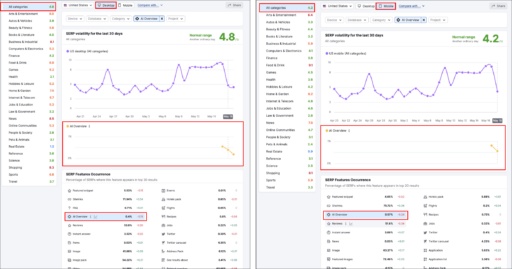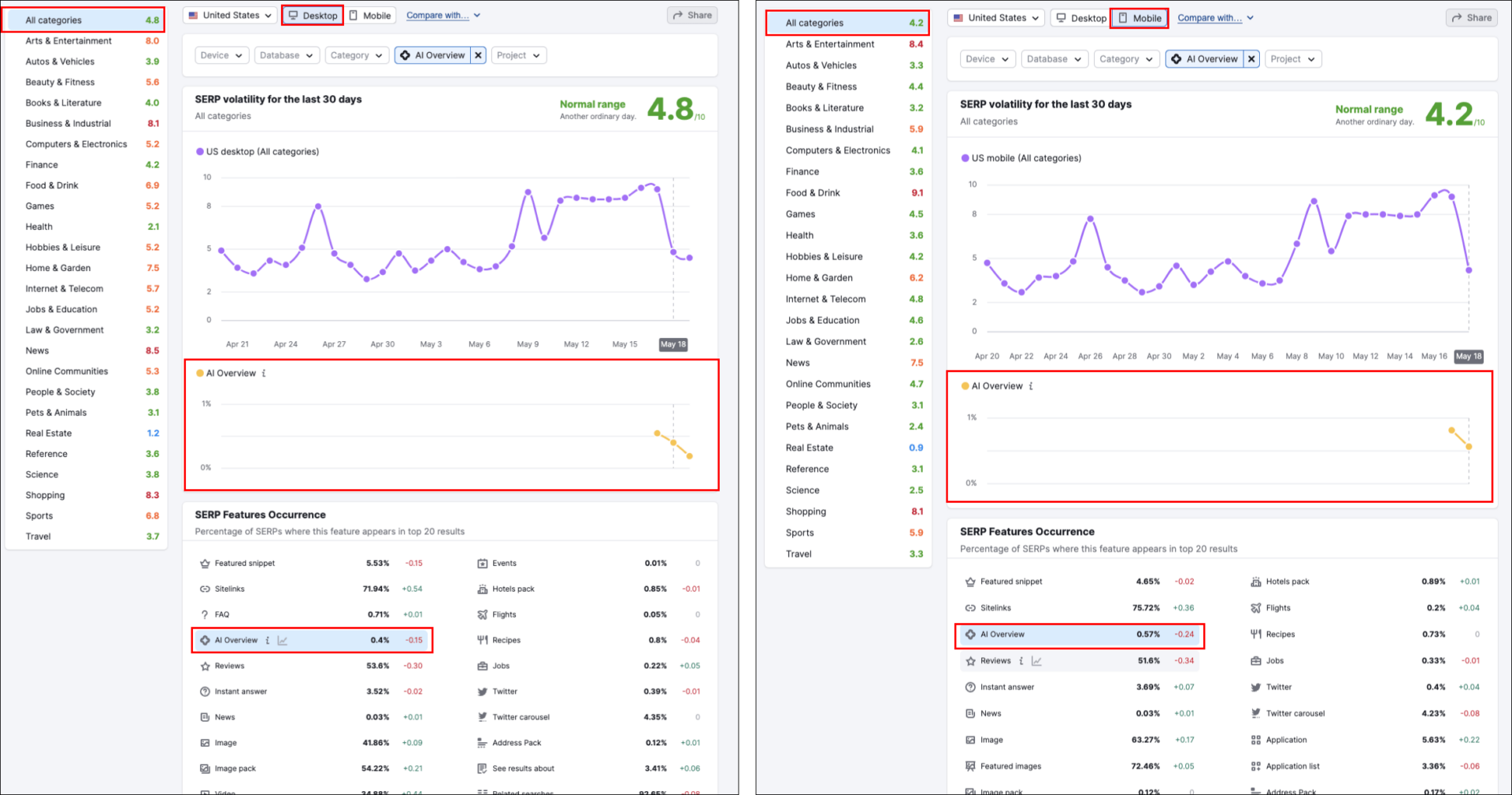Originally Posted on Organic Search AI Feed by Aleyda Solis
Google “AI Overviews” Are Here
Despite the rumors, I didn’t actually expect Google to release their AI Overviews during Google I/O because in a very high share of scenarios the experience while still on test, wasn’t good, including not so very helpful or repetitive information vs the traditional organic search results and the already included search features. I can only imagine that the pressure to release something fast was too high.
Google did it and started its roll out right away, saying in their announcement that they found that “with AI Overviews, people use Search more, and are more satisfied with their results” (without disclosing any data). At least they also said how “AI Overviews are reserved to answer more complex questions where Google feels it can add value beyond the search results”, very likely due to what I mentioned above.
Not so surprisingly, just a few hours after the release many were asking how to turn AI overviews off in Google Search Forums and Chrome extensions to hide it were released. At the very least, I believe they should:
- Clearly alert users why they’re getting the AI overviews
- Give them a very visible and straight-forward option to opt-out.
The good news is that although they don’t seem to be eager to include AI Overviews performance data in the Google Search Console -at least at the moment- to facilitate their monitoring, SEO tools such as Sistrix, Semrush, and Advanced Web Ranking have already integrated features to track AI Overviews, while new ones that allow to do it have been recently released, such as ZipTie.
If you check the tools I mentioned above, you can see how Google AI Overviews inclusions are already visible but still for a very low percentage of search results.
Semrush sensor shows that at the moment, they’re only included in 0.4% of the overall tracked desktop SERPs and 0.57% of mobile ones in the US.
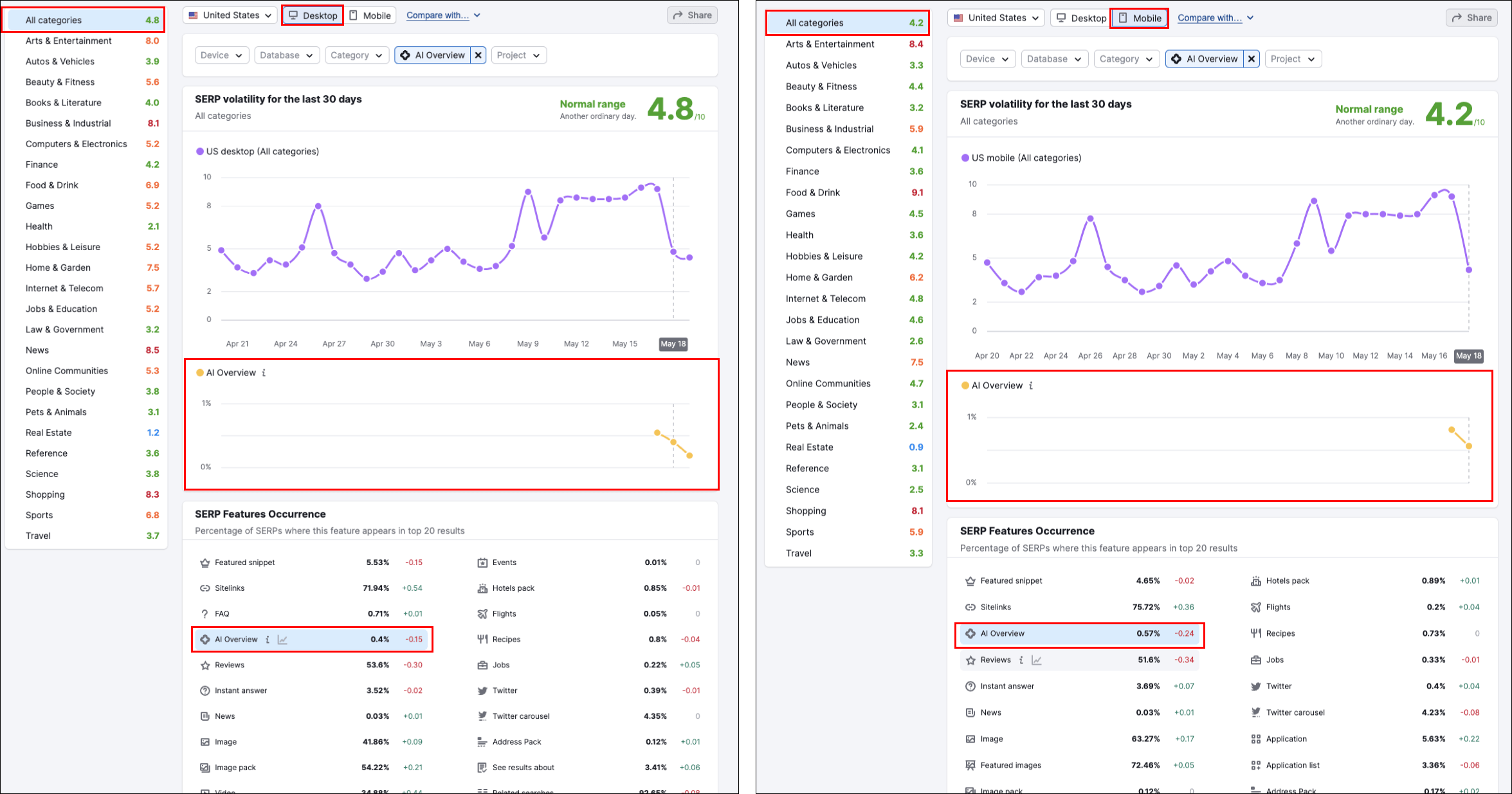
The inclusions also change a bit per sites category:
- The Top: Health (4.02% on desktop and 2.66% on mobile), People & Society and Science.
- Showing none yet: Shopping, Arts & Entertainment, Food & Drink, Jobs & Education SERPs.
For context, Featured Snippets are identified to be shown for 5.53% of desktop SERPs and 4.65% of mobile ones in the US. I expect this percentage to increase but it’s not much higher than the one we see for featured snippets either. You can see these for yourself here.
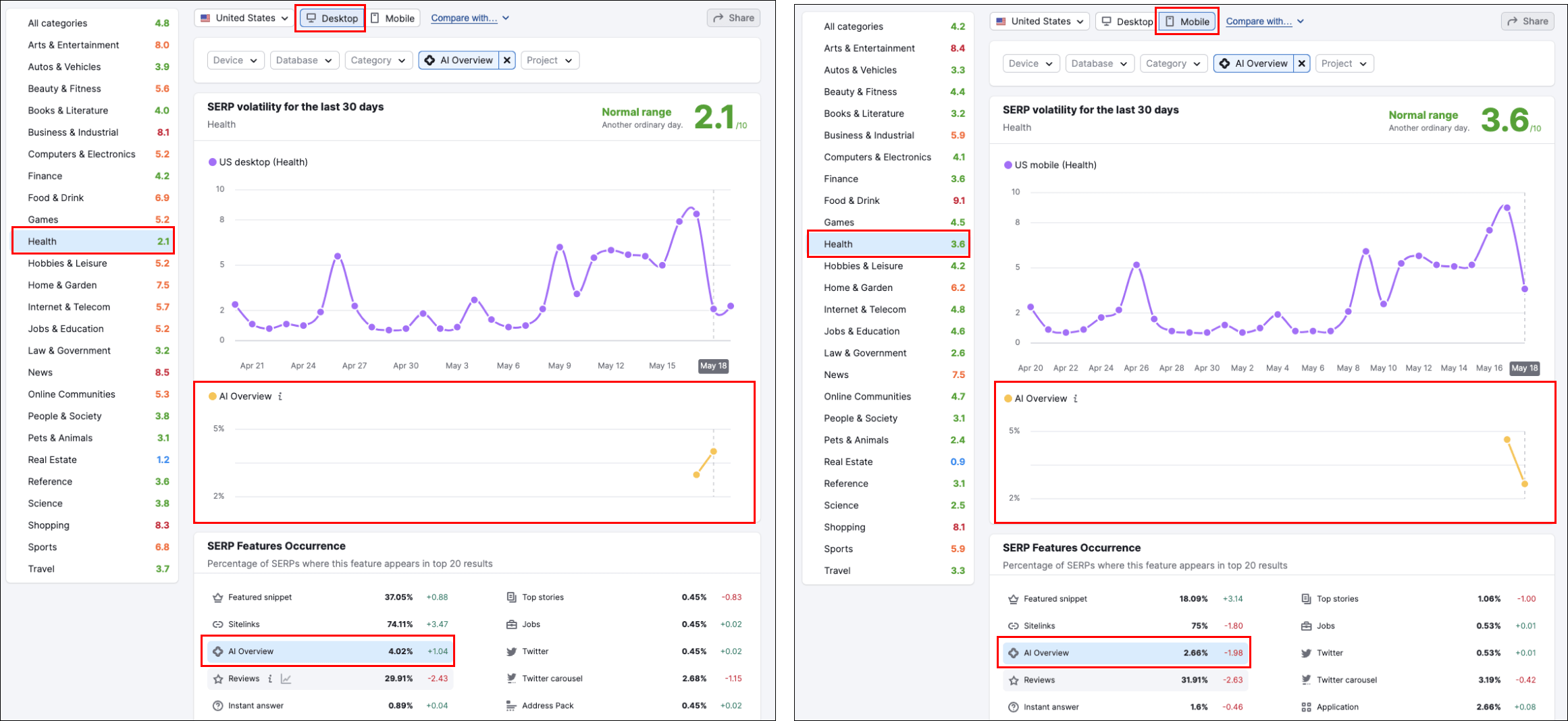
Also, I think that if Google is really interested in keeping “alive” the web ecosystem they use as an input for the AI overviews, it’s fundamental that they give:
- A way to monitor/measure the impact that the AI overviews have on their sites’ content visibility and traffic (for example, to add an AI overview filter in the Google Search Console Performance report).
- A better mechanism for site owners to opt-out from the AI Overviews without affecting other search results snippets, as the current “nosnippet” configuration does, since while we might want to avoid our content to be included in the AI Overviews, we might also want to keep showing our pages full snippets, which is not possible with this solution, as Glenn Gabe shows here.
But what about the AI-organized results page?
Besides the AI Overviews, Google also announced new AI-Organized results pages when looking for inspiration (dining, recipes, movies, etc).
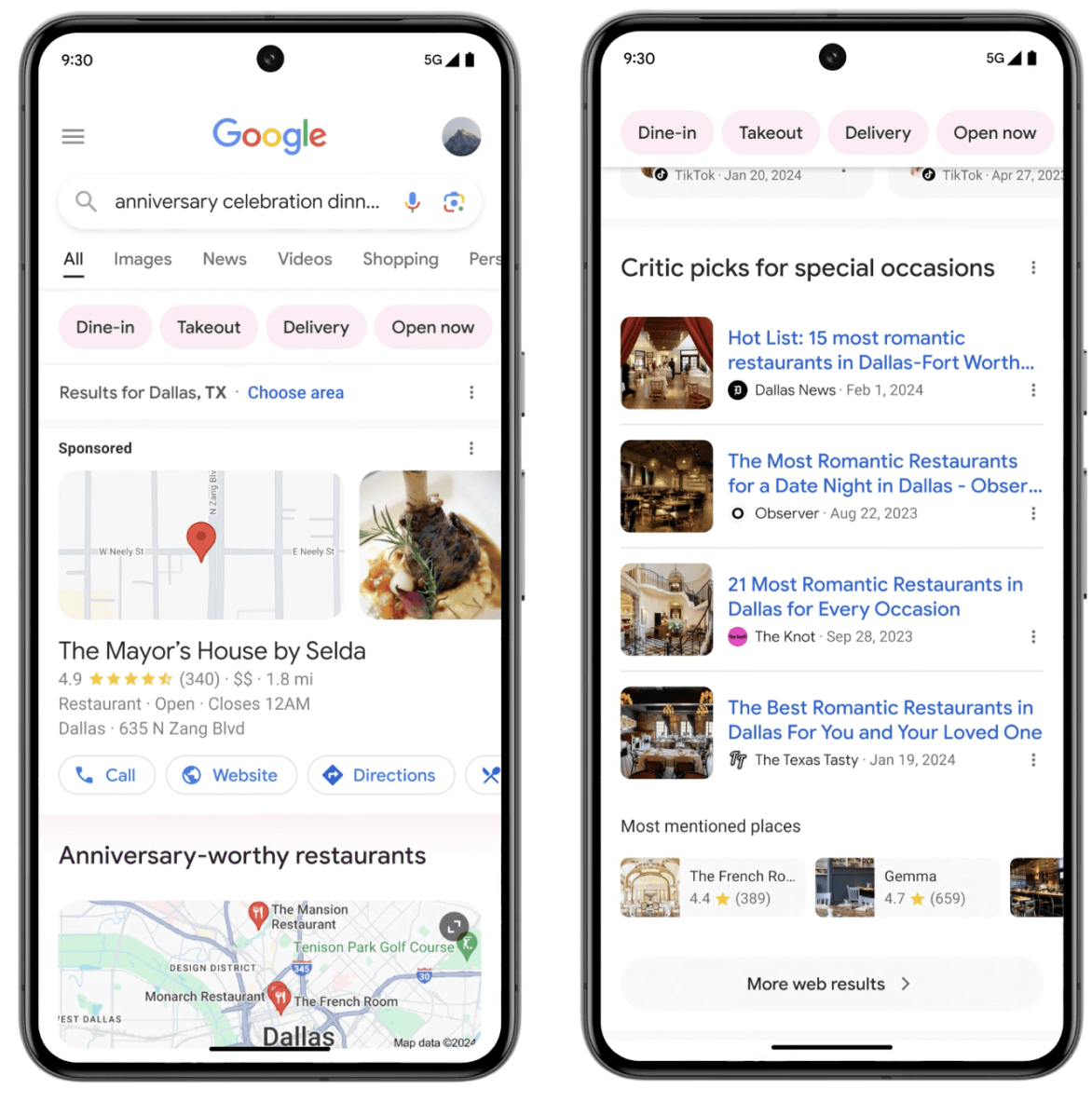
This is something that I can see to be even more game changing in the long run since it might solve a problem in a better way than what Google is doing for those types of searches today if it’s actually able to highlight:
- A good blend of content formats and types through features that refer users to the publishing page where they can continue their journey and contrast information.
- Relevant UGC while filtering out spam and overall non-accurate, low quality information.
For SEOs (and supporting tools), I believe this can mean:
- A much longer tail of queries to target
- Focusing on the more detail specific pages within the search journey (blog posts vs categories)
- Bigger need to invest in content beyond text across many scenarios for more visibility
- Saying goodbye to Traditional positions in SERPs and how we track them.
Sadly we don’t yet have a release date, since Google has just said they will “start soon” showing these for English searches in the US.
The future of search is here and whether we like it or not -and complain and requests for changes accordingly- we should be proactive in identifying the actual risks and opportunities to expand our own or clients’ Web businesses’ visibility and traffic further in it.
I’ll keep you informed over SEOFOMO, via X and LinkedIn.
La entrada Google AI Overviews and Organized Results: About The Release, Tools to Track Results & What to Expect Next se publicó primero en International SEO Consultant, Author & Speaker | Aleyda Solis.


